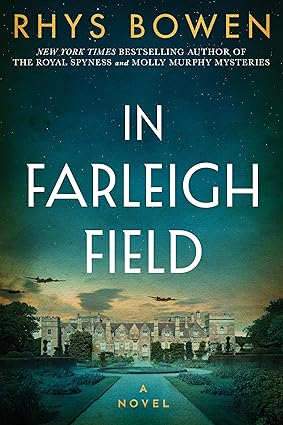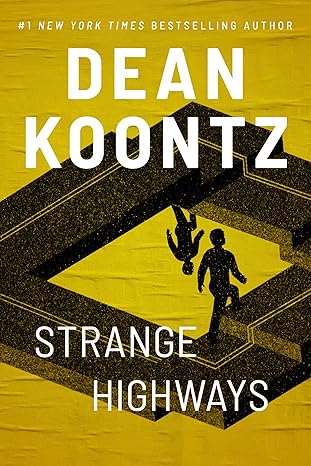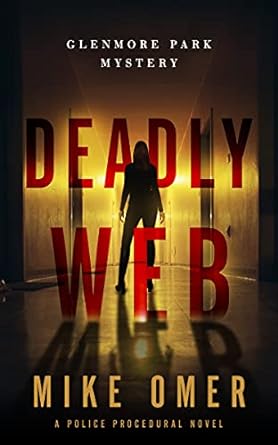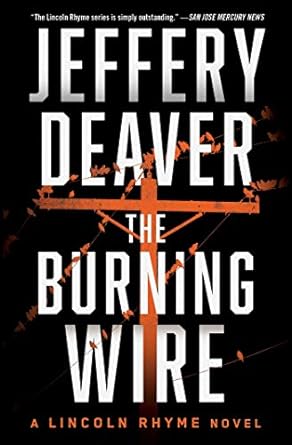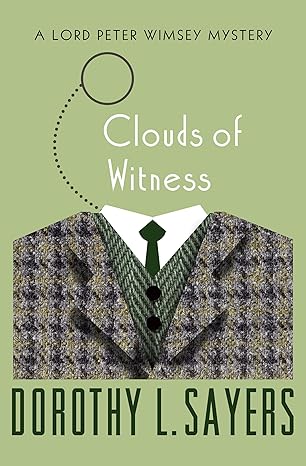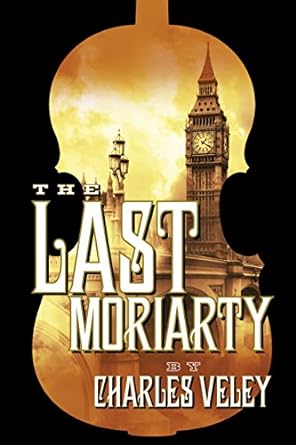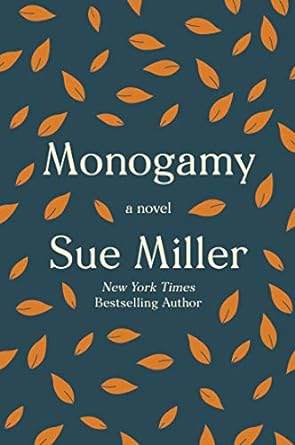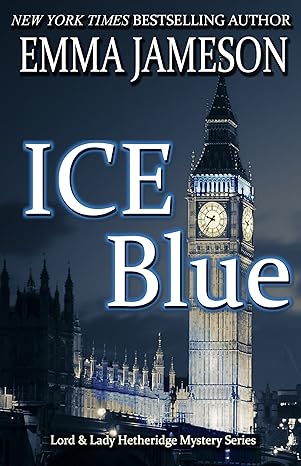
Ice Blue
The New York Times Bestselling Series
Anthony Hetheridge, ninth Baron of Wellegrave, Chief Superintendent for New Scotland Yard, never married, no children, no pets, no hobbies, and not even an interesting vice, will turn sixty in three weeks. With the exception of his chosen career, too sordid for his blue-blooded family to condone, his life has been safe and predictable. But then he meets Detective Sergeant Kate Wakefield – beautiful, willful, and nearly half his age. When Hetheridge saves the outspoken, impetuous young detective from getting the sack, siding with her against Scotland Yard’s powerful male hierarchy, his cold, elegantly balanced world spins out of control. Summoned to London’s fashionable Belgravia to investigate the brutal murder of a financier, Hetheridge must catch the killer while coping with his growing attraction to Kate, the reappearance of an old flame, and the secret that emerges from his own past.
The Lord & Lady Hetheridge Series
#1 ICE BLUE
#2 BLUE MURDER
#3 SOMETHING BLUE
#4 BLACK & BLUE
#5 BLUE BLOODED
#6 BLUE CHRISTMAS
#7 UNTRUE BLUE
BEST DEALS
About the Author
Emma Jameson is the New York Times and USA Today bestselling author of the Lord & Lady Hetheridge cozy mystery series. Book #1, ICE BLUE, Book #2, BLUE MURDER, Book #3, SOMETHING BLUE, Book #4, BLACK & BLUE, Book #5, BLUE BLOODED, Book #6, BLUE CHRISTMAS and Book #7, UNTRUE BLUE, are available now. Book #8 is in the planning stages.
In partnership with digital publisher extraordinaire BOOKOUTURE, Emma created the Jem Jago cozy mystery series. Book 1, A DEATH AT SEASCAPE HOUSE, Book 2, A DEATH AT CANDLEWICK CASTLE, and Book 3, A DEATH AT SILVERSMITH BAY, are available now. Book #4, A DEATH AT NEPTUNE COVE, is forthcoming.
Ms. Jameson is also the creator of amateur sleuth Dr. Benjamin Bones. Set in Cornwall during the Second World War, book #1 is BONES IN THE BLACKOUT, book #2 is BONES AT THE MANOR HOUSE, and book #3 is BONES TAKES A HOLIDAY. The fourth book in the series will be called BONES BURIED DEEP.
Read Sample
CHAPTER ONE
Anthony Hetheridge, ninth Baron of Wellegrave, chief superintendent for New Scotland Yard, never married, no children, no pets, no hobbies, and not even an interesting vice, would turn sixty in three weeks. With the exception of his chosen career, his life had largely gone as predicted, without foolishness or significant errors. He had conducted himself with honor, and had even begun to think of himself as one who "held up well" over the years. Growing old did not torment Hetheridge; it was simply part of the graceful arc of his existence. His twenties had been the time for exploration and a thirst for learning; his thirties, for honing his strengths and accepting his weaknesses; his forties, for the cool, self- centered joy only true professional mastery could bring. His sixties would be the natural time of decline-withdrawal into memories, the descending curtain, the snuffed lights. One night, over a gin and tonic, it occurred to him there were dozens of ways to bring down the curtain himself, on his own terms. It was only fleeting, but the idea's hollow cowardice startled him. Rarely these days did anything escape his control, even an errant thought.
Hetheridge had never suffered the torments of the mind that afflicted his chosen profession, from the greenest constables to his fellow superintendents, who subsisted on takeaway curry and bourbon. Only once, when he was forty-two, had his calm been shaken, when a murder suspect thrust a black, oil-smelling Glock in Hetheridge's face and squeezed the trigger. Before Hetheridge could steady himself, before he could accept the indignity of violent death, there came a deafening crack. He had dropped, unprepared for death, yet unprepared to find himself still alive. The police sniper placed on a rooftop across the street had done his job, felling the suspect before that Glock could introduce Hetheridge's brains to daylight. But daylight, or something like it, had broken in regardless.
For five days he'd been unable to work or receive visitors. One afternoon he found himself sobbing in the walled garden of his Mayfair home-he who loathed displays of emotion, who had no patience for men who acknowledged their innermost weaknesses. He wondered if he could continue to feel on such a level and survive. But on the sixth day his familiar self-control reasserted itself. Fear receded, emotion receded, and he drifted away from that time like a man carried by a swift, smooth current, his life orderly once more.
Now in three weeks he would turn sixty and the sun would set. His legacy: a brilliant career and a spotless reputation. Perhaps he should exit his professional life by retiring on his sixtieth birthday? Nothing was worse than a man who did not know when to take his leave.
Standing before the cherry-framed cheval mirror, Hetheridge knotted his silk tie, waving away alternatives offered by his valet, Harvey. Harvey enjoyed being overly accommodating in every sartorial decision, and Hetheridge enjoyed accepting the first decent option and ignoring the other choices. Harvey had "gone into service," as he put it, to debase himself to a peer, and Hetheridge, resigned to the bizarre effect his title had on a large segment of the population, played along.
Never tall and never handsome, Hetheridge had been mild and boyish in his youth--the eternal "good cop" to his partner's nasty old copper. But time had worked a curious alchemy on his features. His eyes were still bright blue, and his medium brown hair had turned steel gray. But while most of his contemporaries had gone doughy, jowly and soft, Hetheridge had grown into his features. The lines around his eyes and mouth lent an authority his youthful face had lacked. Now there was a firm set to his mouth and a thoughtful crease across his brow.
And I could easily pass for fifty, he thought, enjoying a moment of egotism.
He dressed as he always did-in a beautifully tailored suit, Italian shoes, heirloom cufflinks and a silk tie he'd purchased on Bond Street. His hair, still as thick and coarse as it had been thirty years ago, was trimmed every three weeks to assure perfection. It made little difference how he was perceived as Lord Hetheridge, but a chief superintendent had a certain dignity to uphold.
The crawl of traffic from Mayfair to New Scotland Yard passed as usual, with Hetheridge ensconced in the back of the Bentley, immersed in the Times and wishing for a post-coffee cigarette. He had quit nearly twenty years ago, yet the impulse to smoke on the way to the office had never left him, not even for a day.
His driver made the trip with five minutes to spare, and Hetheridge found himself at his destination with the op-ed page still unread. Surprised, he tossed the Times on the floorboards and climbed out of the Bentley, blinking in the bright sunshine. He didn't own a pair of sunglasses-in his opinion, sunglasses on the elderly looked ridiculous. But he seemed to need them more each day, he realized, putting up a hand to block the light. A hat was the more appropriate option. Bowler, or wide-brimmed? Pondering this solution as he made his way inside, Hetheridge nearly plowed into Superintendent Vic Jackson, the most recent promotion at the Yard, and Detective Sergeant Wakefield, who were rowing for the benefit of all. "You're insubordinate!" Superintendent Jackson shouted, face pink with fury.
"You're a plonker!" DS Wakefield shouted back.
Hetheridge, recovering his vision under the blessedly familiar artificial light, took in the rage of each combatant, as well as the avid interest of receptionists, janitors and assorted members of the public. "I say," he muttered, shifting his briefcase from one hand to another.
"I won't have any more insults from you, you dirty little dyke!" Superintendent Jackson bellowed, clearly unaware of Hetheridge's gentle interruption. "Your career is finished!"
"Dyke?" Wakefield screeched. "Because I didn't do you? Because I said no thanks when you pulled out that poor little thing and waved it about?" My God. Hetheridge stared at DS Wakefield. He'd heard of her, of course, and seen her in passing, across the length of a paved lot. But now he gazed at her as if he'd never seen a woman before. His stomach dropped, as it had when that oil-smelling Glock appeared in his face. She's beautiful. "Clean out your desk." Manhood impugned, Jackson's voice shot into its squeaky upper register. "Get out of my sight!"
"What about Commander Deaver?" Wakefield screamed. "How d'ya fink he'll like fis rubbish?"
"I say, that's enough." Hetheridge's voice rang through the lobby.
The lobby, still electrified by DS Wakefield's defiance, went cold and silent. Her tone, goaded into its extremity, had betrayed the coarse bray of East London.
"This useless mingebag is at fault, sir." Jackson turned to Hetheridge for support. "She-" "Enough." Hetheridge knew he appeared unruffled, despite the cold rage in his voice.
"Sir, I apologize for losing control. But he—"
"I said, enough," Hetheridge cut across DS Wakefield. Her hair was blond, her eyes hazel, more green than brown.
"I shall speak to Commander Deaver about this unfortunate display," Hetheridge said. "To that end, I require a written explanation from each of you within the next eight hours. In the meantime, no one will suffer another personal insult," he met Superintendent Jackson's eyes, "and no one will clean out their desks," he told DS Wakefield. "And now, if you will accompany me to my office, Detective Sergeant?"
He set a brisk pace to the bank of lifts, aware he was watched by every face in the lobby, and unconcerned. What he felt, or imagined he felt, was the heat of one stare behind him, burning into his shoulder blades as she followed him onto the lift.
Once aboard, he turned, pressed number six and shifted his briefcase from hand to hand. His duty was clear. Superintendent Jackson must be supported. The chiefs and supers always bolstered one another. And beneath that duty, less openly discussed but nonetheless understood, the males of New Scotland Yard always closed ranks against the females. It was nothing against women as a species, of course. Everyone agreed that a pretty face and a soft voice were welcome, as were shapely calves, giggles and a dollop of compassion, when the moment called for it. Hetheridge, who'd rarely been required to work with female officers, had heard all the stories. To hear Commander Deaver tell it, one moment they were all sweetness and light, and the next they rose like cobras, spitting venom about "fairness" and "reciprocity" and accusing every man in sight of sexual harassment.
The lift doors opened. DS Wakefield didn't move. Hetheridge placed one hand so the doors could not close, then gestured, stiff and unsmiling, for her to exit first.
Hazel eyes widened. A smile tugged at her lips, but disappeared into a mask of obedience. She maintained that bland expression as Hetheridge led the way inside.
"Have a seat." Placing his briefcase on the massive credenza, Hetheridge shrugged out of his overcoat, hanging it on the tall stand beside the door. Opening the curtains, he tilted the blinds to let the sun in. Seating himself in his capacious executive armchair, back to the blaze of daylight, he watched DS Wakefield blink, shifting in her far less comfortable seat.
"I say," she murmured, tilting her face away from the glare.
Hetheridge was startled. He hadn't expected her to speak first. Certainly no male subordinate in the same situation would have dared open his mouth before his superior invited him to do so. "What?"
"I say," she repeated, meeting his eyes. "That's how you made the entire room leap to attention. I say," she grinned, the East London accent gone, replaced by a passable imitation of Hetheridge's public school voice. "I don't think I've ever heard that before, except in old movies. These days, it's more like, oi!"
"Oi!" Hetheridge shot back, surprising himself with all the menace he could pour into such a basic exclamation.
"Perfect," DS Wakefield crowed. "You could be a football hooligan, sir!"
"Oi," he repeated, warming to her pleasure. "If you imagine a Cockney chimney sweep shouting 'I say!' at someone-sort of an 'Oihgh sah,' you can almost hear it turning into oi, can't you?"
DS Wakefield looked impressed. "I never thought of that. Is that true?"
"Haven't the foggiest." Hetheridge drew a breath. His original stern opening seemed lost forever. "So what was all that then? The row between you and Superintendent Jackson?"
"He's a plonker."
"Naturally. Well, then, I'll inform Commander Deaver. At the Yard, the plonker defense has always been ironclad."
DS Wakefield, perhaps not truly beautiful in the full light of day, was still radiantly pretty, especially when amused. "Or who knows, maybe I'm the plonker." Her eyes were long-lashed and perfectly balanced; her nose and mouth were a tad asymmetrical, making her an individual instead of another nameless lipstick model. "Screaming at my superior officer isn't the best way to make myself understood."
"It sounded like you accused Superintendent Jackson of sexual impropriety."
DS Wakefield studied him silently. Then her face took on that familiar look: mustn't-grumble. "Forget it."
"I see. So you admit the serious allegation you made against Superintendent Jackson, in front of me and numerous others, was a lie?"
"No, sir, it happened. But we were off duty, down at the pub. He was drunk and went too far. I didn't count it against him, not until this morning when he started calling me names."
Hetheridge didn't know what to think. Conventional wisdom-the backroom judgment of his contemporaries-would assume DS Wakefield was choosing to make no fuss at the moment, reserving the right to seduce Jackson later. Commander Deaver would probably argue any impropriety had been consensual, leading her to think she could get away with insubordination the next morning. But did that make sense? And what was it like to be DS Wakefield-young, attractive, intelligent-pursued by a drunken superior with a midlife libido and an unzipped fly? "I'm sorry," DS Wakefield said, though she neither looked nor sounded apologetic. "Did I shock you, my lord?"
"Here you will address me as Chief Superintendent Hetheridge," he said coldly. He loathed the use of his hereditary title in the Yard, where it was only invoked as a special form of reverse snobbery.
She smiled, eyes sliding away. Something in that slight smile pricked Hetheridge in a way he could not bear. "Yes?" Silence.
"You have something to say. Go on."
"It's just that everyone calls you 'my lord,' sir. I only said it from force of habit, sir. Sorry, sir."
He stared at DS Wakefield for a long moment. Everything about her phony blandness and gleaming eyes told him it was the truth. In the arena where he prided himself on contending as a self-made man among other self-made men-in the place where brains, drive and courage mattered more than one's forbearers or one's ancestral home-he was mocked as "my lord" by all. Including this woman who'd clawed her way up from the East End, and whose career now balanced on the point of a knife.
"Out of my sight," Hetheridge said, unconsciously echoing Superintendent Jackson. "Write your explanation and have it on my desk by the end of the day. Think carefully about whether you deserve to remain at New Scotland Yard, Sergeant."
She was up in one quick movement, bursting to her feet like a child eager to escape the headmaster's office. Then she paused, mouth twisting, indecision plain on her face. She crossed halfway to the office door, then turned back, pushing her shoulder-length blond hair behind her ears and squaring her shoulders.
"What?" Hetheridge snapped.
"The super and I weren't fighting because he pulled out Little Vic in the pub. Heaven knows I'm used to rubbish like that. We were fighting over a case," DS Wakefield said. "He told me to focus on the dead girl's best client and ignore all the evidence against her boss-motive, opportunity, even a few juicy circumstantial bits. The super made up his mind early on, you see, and wouldn't hear anything that didn't fit his original scenario. That's why he said I was insubordinate. Because I kept up the investigation on my own time. And that's why I said he was a plonker-because he doesn't care what really happened to the dead girl, as long as he stitches up his chosen punter. Superintendent Jackson won't see the truth when it does a strip tease in front of him. That's his problem. I don't suffer fools gladly. That's mine."
Hetheridge digested this information. "What made you finally tell me?"
"I don't know. I had the weirdest feeling you'd listen. I know the top men always prop each other up, especially against women. The lads will boil your bollocks if you don't stand with them. And I know I rub everyone wrong everyone in authority, at least. Even the women, when I actually encounter one, treat me like a cockroach. But you there was something in the way you said 'oi!" DS Wakefield grinned at Hetheridge—a cheeky grin, fearless, bright as the sunlight that had dazzled him when he emerged from the Bentley. "Something like a kindred spirit. So there it is." She grinned again. Then she was gone.
His office door swung gently in her wake, not quite open and not fully closed. Passing a hand over his eyes, Hetheridge reminded himself of his proximity to age sixty and wondered what, precisely, was happening to him.
Copyright: Emma Jameson


